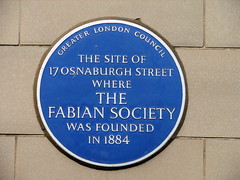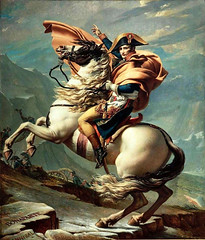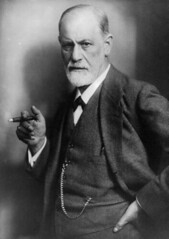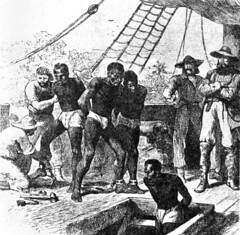| 2463964333 | Paleolithic Age | The Old Stone Age ending in 12,000 BCE; typified by use of crude stone tools and hunting and gathering for subsistence. |  | 0 |
| 2463972657 | Homo sapiens | The humanoid species that emerged as most successful at the end of the Paleolithic period. |  | 1 |
| 2463977959 | Neolithic Age | The New Stone Age between 8000 and 5000 BCE; period in which adaptation of sedentary agriculture occurred; domestication of plants and animals accomplished. |  | 2 |
| 2463987716 | Neolithic Revolution | The succession of technological innovations and changes in human organization that led to the development of agriculture, 8500-3500 BCE |  | 3 |
| 2463995882 | hunting and gathering | The original human economy, ultimately eclipsed by agriculture; groups hunt for meat and forage for grains, nuts, and berries |  | 4 |
| 2464002819 | Bronze Age | From about 4000 BCE when bronze tools were first introduced in the Middle East to about 1500 BCE when iron began to replace it. |  | 5 |
| 2464009721 | slash and burn agriculture | A system of cultivation typical of shifting cultivators; forest floors cleared by fire are then planted. |  | 6 |
| 2464015831 | band | A level of social organization normally consisting of 20 to 30 people; nomadic hunters and gatherers; labor divided on a gender basis. | | 7 |
| 2464028265 | Çatal Hüyük | Early urban culture based on sedentary agriculture; located in modern day southern Turkey; was larger in population than Jericho, had greater degree of social stratification. |  | 8 |
| 2464038275 | civilization | Societies distinguished by reliance on sedentary agriculture, ability to produce food surpluses, and existence of nonfarming elites, as well as merchant and manufacturing groups. |  | 9 |
| 2464047239 | cuneiform | A form of writing developed by the Sumerians using a wedge-shaped stylus and clay tablets. |  | 10 |
| 2464052694 | nomads | Cattle- and sheep-herding societies normally found on the fringes of civilized societies; commonly referred to as "barbarian" by civilized societies. |  | 11 |
| 2464060689 | Mesopotamia | Literally "between the rivers"; the civilizations that arose in the alluvial plain of the Tigris and Euphrates river valleys. | 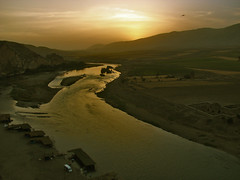 | 12 |
| 2464067595 | Sumerians | People who migrated into Mesopotamia c. 4000 BCE; created first civilization within region; organized area into city-states. |  | 13 |
| 2464073706 | ziggurats | Massive towers usually associated with Mesopotamian temple complexes. |  | 14 |
| 2464077420 | city-state | A form of political organization typical of Mesopotamian civilizations; consisted of agricultural hinterlands ruled by an urban-based king. |  | 15 |
| 2464084521 | Babylonian Empire | Unified all of Mesopotamia c 1800 BCE; collapsed due to foreign invasion c 1600 BCE. |  | 16 |
| 2464089722 | Hammurabi | (r. 1792 - 1750 BCE) The most important ruler of the Babylonian Empire; responsible for codification of law. |  | 17 |
| 2464096914 | pharaoh | Title of kings of Ancient Egypt. |  | 18 |
| 2464098806 | pyramids | Monumental architecture typical of Old Kingdom Egypt; used as burial sites for pharaohs. |  | 19 |
| 2464103200 | Kush | An African state that developed along the upper reaches of the Nile c. 1000 BCE; conquered Egypt and ruled it for several centuries. | | 20 |
| 2464113582 | Indus River Valley | River sources in Himalayas to mouth in Arabian Sea; location of Harappan civilization. |  | 21 |
| 2464119298 | Harappa | Along with Mohenjodaro, major urban complex of the Harappan civilization; laid out on planned grid pattern. | | 22 |
| 2464130905 | Mohenjo Daro | Along with Harappa, major urban complex of the Harappan civilization; laid out on planned grid pattern. |  | 23 |
| 2464134839 | Yellow River | Also known as the Huanghe; site of development of sedentary agriculture in China. |  | 24 |
| 2464139288 | Shang | First Chinese dynasty for which archeological evidence exists; capital located in Ordos bulge of the Huanghe; flourished 1600 to 1046 BCE. |  | 25 |
| 2464145949 | oracles | Shamans of priests in Chinese society who foretold the future through interpretations of animal bones cracked by heat; inscriptions on the bones led to Chinese writing. |  | 26 |
| 2464153617 | ideographs | Pictographic characters grouped together to create new concepts; typical of Chinese writing. |  | 27 |
| 2464159926 | Phoenicians | Seafaring civilization located on the shores of the eastern Mediterranean; established colonies throughout the Mediterranean. |  | 28 |
| 2464164413 | monotheism | The exclusive worship of a single god; introduced by the Jews into Western civilization. |  | 29 |
| 2464174730 | Shi Huangdi | Founder of the brief Qin dynasty in 221 BCE. |  | 30 |
| 2464177831 | Qin dynasty | Established in 221 BCE at the end of the Warring States period following the decline of the Zhou dynasty; fell in 207 BCE. |  | 31 |
| 2464183667 | Han dynasty | Chinese dynasty that succeeded the Qin in 202 BCE; ruled for the next 400 years. |  | 32 |
| 2464188717 | Zhou | Originally a vassal family of Shang China; possibly Turkic in origin; overthrew the Shang and established a second Chinese historical dynasty that flourished 1122 to 256 BCE. |  | 33 |
| 2464198650 | Confucius | Also known as Kung Fuzi; major Chinese philosopher born in the 6th century BCE; author of "Analects"; philosophy based on need for restoration of order through advice of superior men to be found among the shi. |  | 34 |
| 2464206145 | Great Wall | Chinese defensive fortification intended to keep out the nomadic invaders from the north; initiated during Qin dynasty and reign of Shi Huangdi. |  | 35 |
| 2464216500 | Buddha | Creator of a major Indian and Asian religion; birn in 6th century BCE as son of a local ruler among Aryan tribes located near the Himalayas; became an ascetic; found enlightenment could be achieved only by abandoning desires for all earthly things. |  | 36 |
| 2464239993 | Alexander the Great | Successor of Philip II; successfully conquered Persian Empire prior to his death in 323 BCE; attempted to combine Greek and Persian cultures. |  | 37 |
| 2464245863 | Himalayas | Mountain region marking the northern border of the Indian subcontinent; site of the Aryan settlements that formed small kingdoms of warrior republics. | 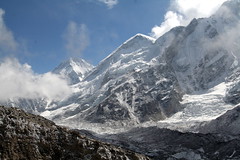 | 38 |
| 2464251730 | monsoons | Seasonal winds crossing Indian subcontinent and southeast Asia; during summer bring rains. |  | 39 |
| 2464257042 | Sanskrit | The sacred and classical Indian language. |  | 40 |
| 2464258936 | Vedas | Aryan hymns originally transmitted orally but written down in sacred books from the 6th century BCE. |  | 41 |
| 2464264321 | Mahabharata | Indian epic of war, princely honor, love, and social duty; written down in the last centuries BCE; previously handed down in oral form. |  | 42 |
| 2464272432 | Ramayana | One of the great epic tales from classical India; traces adventures of King Rama and his wife, Sita; written 4th to 2nd centuries BCE. |  | 43 |
| 2464278725 | Upanishads | Later books of the Vedas; contained sophisticated and sublime philosophical ideals; utilized by Brahmans to restore religious authority. |  | 44 |
| 2464283882 | varnas | Clusters of caste groups in Aryan society; four social castes- Brahmans (priests), warriors, merchants, and peasants; beneath four Aryan castes was group of socially untouchable Dasas. |  | 45 |
| 2464294389 | untouchables | Low social class in Hindu culture; performed tasks that were considered polluting- street sweeping, removal of human waste, and tanning. |  | 46 |
| 2464300602 | Indra | Chief deity of the Aryans; depicted as a colossal, hard-drinking warrior. |  | 47 |
| 2464305127 | Chandragupta Maurya | Founder of the Maurya dynasty; established first empire in Indian subcontinent; first centralized government since Harappan civilization. |  | 48 |
| 2464314972 | Mauryan Dynasty | Established in Indian subcontinent in 4th century BCE following invasion by Alexander the Great. |  | 49 |
| 2464319909 | Ashoka | Grandson of Chandragupta Maurya; completed conquests of Indian subcontinent; converted to Buddhism and sponsored spread of new religion throughout his empire. |  | 50 |
| 2464325182 | dharma | The caste position and career determined by a person's birth; Hindu culture required that one accept one's social position and perform occupation to the best of one's ability in order to have a better situation in the next life. |  | 51 |
| 2464338052 | Guptas | Dynasty that succeeded the Kushans in the 3rd century CE, built empire that extended to all but the southern regions of Indian sub-continent; less centralized than Mauryan Empire. |  | 52 |
| 2464344974 | Kautilya | Political advisor to Chandragupta Maurya; one of the authors of Arthashastra; believed in scientific application of warfare. |  | 53 |
| 2464351080 | gurus | Originally referred to as Brahmans who served as teachers for the princes of the imperial court of the Guptas. |  | 54 |
| 2464355865 | Vishnu | The Brahman, later Hindu, god of sacrifice, widely worshipped. |  | 55 |
| 2464358800 | Shiva | Hindu, god of destruction and reproduction; worshipped as the personification of cosmic forces of change. |  | 56 |
| 2464363196 | nirvana | The Buddhist state of enlightenment; a state of tranquility. |  | 57 |
| 2464366973 | Kamasutra | Written by Vatsayana during Gupta era; offered instructions on all aspects of life for higher-caste males; including grooming, hygiene, etiquette, selection of wives, and lovemaking. |  | 58 |
| 2464375303 | stupas | Stone shrines build to house pieces of bone or hair and personal possessions said to be the relics of the Buddha; preserved Buddhist architectural forms. |  | 59 |
| 2464383544 | scholar-gentry | Chinese class created by the marital linkage of the local land-holding aristocracy with the office-holding shi; superseded shi as governors of China. |  | 60 |
| 2469675495 | Cyrus the Great | Established massive Persian Empire by 550 BCE; successor state to Mesopotamian empires. |  | 61 |
| 2469681146 | Zoroastrianism | Animist religion that saw material existence as battle between forces of good and evil; stressed the importance of moral choice; righteous lived on after death in "House of Song"; chief religion of Persian Empire. |  | 62 |
| 2469689376 | Olympic games | One of the pan-Hellenic rituals observed by all Greek city-states; involved athletic competitions and ritual celebrations. |  | 63 |
| 2469693453 | Pericles | Athenian political leader during the 5th century BCE; guided development of Athenian Empire; died during early stages of Peloponnesian War. |  | 64 |
| 2469699256 | Peloponnesian Wars | Wars from 431 to 404 BCE between Athens and Sparta for dominance in Southern Greece; resulted in Spartan victory but failure to achieve political unity of Greece. |  | 65 |
| 2469704699 | Phillip II | Ruled Macedon from 359 to 336 BCE; founder of centralized kingdom; later conquered rest of Greece, which was subject to Macedonian authority. |  | 66 |
| 2469710474 | Hellenistic period | That culture associated with the spread of Greek influence as a result of Macedonian conquests; often seen as the combination of Greek culture with eastern political forms. |  | 67 |
| 2469715022 | Alexandria, Egypt | One of the cities founded by and named for Alexander the Great; site of ancient Mediterranean's greatest library; center of literary studies. |  | 68 |
| 2469721085 | Roman republic | The balanced constitution of Rome from c. 510 to 47 BCE; featured an aristocratic Senate, a panel of magistrates, and several popular assemblies. |  | 69 |
| 2469725766 | Punic Wars | Fought between Rome and Carthage to establish dominance in the Western Mediterranean; won by Rome after three separate conflicts. |  | 70 |
| 2469730251 | Carthage | Originally a Phoenician colony in northern Africa; became a major port and commercial power in the western Mediterranean; fought the Punic Wars with Rome for dominance of the western Mediterranean. |  | 71 |
| 2469735525 | Hannibal | Great Carthaginian general during the Second Punic War; successfully invaded Italy but failed to conquer Rome; finally defeated at Battle of Zama. |  | 72 |
| 2469740560 | Julius Caesar | Roman general responsible for conquest of Gaul; brought army back to Rome and overthrew republic; assassinated in 44 BCE by conservative senators. |  | 73 |
| 2469745060 | Augustus Caesar | Name given to Octavian following his defeat of Mark Anthony and Cleopatra; first emperor of Rome. |  | 74 |
| 2469749946 | Diocletian | Roman emperor from 284 to 305 CE; restored later empire by improved administration and tax collection. Divided the Roman Empire into east and west sections. |  | 75 |
| 2469754017 | Constantine | Roman emperor from 312 to 337 CE; established second capital at Constantinople; attempted to use religious force of Christianity to unify empire spiritually. |  | 76 |
| 2469759774 | direct democracy | Where people participate directly in assemblies that make laws and select leaders, rather than electing representatives. | | 77 |
| 2469763201 | Senate | Assembly of Roman aristocrats; advised on policy within the republic; one of the early elements of the Roman constitution. |  | 78 |
| 2469765845 | consuls | Two chief executives or magistrates of the Roman republic; elected by an annual assembly dominated by aristocracy. |  | 79 |
| 2469768503 | Cicero | (106-43 BCE) Conservative Roman senator; stoic philosopher; one of the great orators of his day; killed in reaction to assassination of Julius Caesar. |  | 80 |
| 2469773897 | Aristotle | (384-322 BCE) Greek philosopher; teacher of Alexander the Great; knowledge based on observation of phenomena in material world. |  | 81 |
| 2469778687 | Stoics | Hellenistic group of philosophers; emphasized inner moral independence cultivated by strict discipline of the body and personal bravery. |  | 82 |
| 2469784077 | Socrates | Athenian philosopher of later 5th century BCE; tutor of Plato; urged rational reflection of moral decisions; condemned to death for corrupting minds of Athenian young. |  | 83 |
| 2469789772 | Sophocles | (496-406 BCE) Greek writer of tragedies; author of Oedipus Rex |  | 84 |
| 2469791413 | Iliad and Odyssey | Greek epic poems attributed to Homer but possibly the work of many authors; defined gods and human nature that shaped Greek mythos. |  | 85 |
| 2469796247 | Doric | Along with Ionian and Corinthian, distinct style of Hellenistic architecture; the least ornate of the three styles. |  | 86 |
| 2469802414 | Ionic | Along with Doric and Corinthian, distinct style of Hellenistic architecture; more ornate than Doric but less than Corinthian. |  | 87 |
| 2469805316 | Corinthian | Along with Doric and Ionic, distinct style of Hellenistic architecture; the most ornate of the three styles. |  | 88 |
| 2475957279 | Axum | Kingdom located in Ethiopian highlands; replaced Meroë in the first century CE; received strong influence from Arabian peninsula; eventually converted to Christianity. |  | 89 |
| 2475960267 | Ethiopia | A Christian kingdom that developed on the highlands of eastern Africa under the dynasty of King Lalaibela; retained Christianity in the face of Muslim expansion elsewhere in Africa. |  | 90 |
| 2475962717 | Sahara | Desert running across northern Africa; separates the Mediterranean coast from southern Africa. |  | 91 |
| 2475964328 | Shinto | Religion of early Japanese culture; devotees worshipped numerous gods and spirits associated with the natural world; offers of food and prayers made to gods and nature spirits. |  | 92 |
| 2475968105 | Olmec culture | Cultural tradition that arose at San Lorenzo and La Venta in Mexico c. 1200 BCE; found irrigated agriculture, urbanism, elaborate religion, beginnings of calendrical and writing systems. |  | 93 |
| 2475975796 | Teotihuacan | Site of classic culture in central Mexico; urban center with important religious functions; supported by intensive agriculture in surrounding regions; population of as much as 20,000. | 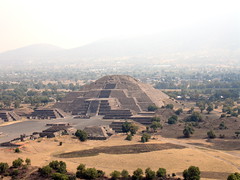 | 94 |
| 2475981587 | Maya | Classic culture emerging in southern Mexico and Central America contemporary with Teotihuacan; extended over broad region; featured monumental architecture; written language, calendrical and mathematical systems, highly developed religion. | 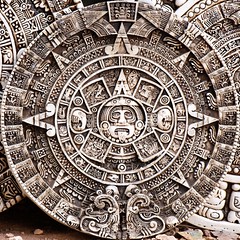 | 95 |
| 2475987909 | Inca | Group of clans centered at Cuzco that were able to create an empire incorporating various Andean cultures; term also used for leader of empire. |  | 96 |
| 2475991434 | Polynesia | Islands contained in a rough triangle whose points lie in Hawaii, New Zealand, and Easter Island. |  | 97 |
| 2475993673 | Yellow Turbans | Chinese Daoists who launched a revolt in 184 CE in China promising a Golden Age to be brought about by divine magic. |  | 98 |
| 2475995895 | Sui | Dynasty that succeeded Han in China; emerged from string rulers in northern China; united all of northern China and reconquered southern China. |  | 99 |
| 2475997227 | Tang | Dynasty that succeeded the Sui in 618 CE; more stable than previous dynasty. |  | 100 |
| 2476000184 | Rajput | Regional princes in western India; emphasized military control of their regions. |  | 101 |
| 2476001686 | Devi | Mother goddess within Hinduism; widely spread following collapse of Guptas; encouraged new emotionalism in religious ritual. |  | 102 |
| 2476003261 | Islam | Major world religion having its origins in 610 CE in the Arabian peninsula; meaning literally submission, based on prophecy of Muhammad. |  | 103 |
| 2476006396 | Allah | Supreme God in strictly monotheistic Islam. |  | 104 |
| 2476010148 | Byzantine Empire | Eastern half of Roman empire following collapse of western half of old empire; retained Mediterranean culture, particularly Greek; later lost Palestine, Syria, and Egypt to Islam; capital at Constantinople. |  | 105 |
| 2476015510 | Justinian | Early Byzantine emperor, responsible for major building in Constantinople and a codification of Roman law; his efforts to recapture some additional previously Roman territory ended in failure. |  | 106 |
| 2476019567 | St. Augustine | Influential church father and theologian (354-430 CE); born in Africa and ultimately bishop of Hippo in Africa; champion of Christian doctrine against various heresies and very important in the long-term development of Christian thought on such issues as predestination. |  | 107 |
| 2476024417 | Coptic | Christian sect in Egypt, later tolerated after Islamic takeover. |  | 108 |
| 2476027394 | bodhisattvas | Buddhist holy men; built up spirit merits during their lifetime; prayers even after death could aid people to achieve reflected holiness. |  | 109 |
| 2476030339 | Mahayana | Chinese version of Buddhism; placed considerable emphasis on Buddha as god or savior. |  | 110 |
| 2476032789 | Jesus of Nazareth | Prophet and teacher among the Jews; believed by Christians to be the Messiah; executed c. 30 CE. |  | 111 |
| 2476036281 | Paul | (3-67 CE) One of the first Christians missionaries; moved away from insistence that adherents of the new religion follow Jewish law; use of Greek as language of Church. |  | 112 |
| 2476041807 | pope | Bishop of Rome; head of the Christian church in western Europe. |  | 113 |
| 2476043284 | Benedict of Nersia | Founder of monasticism in what had been the western half of the Roman empire; established Benedictine Rule in the 6th century CE; paralleled development of Basil's rules in Byzantine Empire. |  | 114 |
| 2476048791 | animism | A religious outlook that sees gods in many aspects of nature and propitiates them to help control and explain nature; typical of Mesopotamian religions. |  | 115 |
| 2574263919 | bedouin | Nomadic pastoralists of the Arabian peninsula; culture based on camel and goat nomadism; early converts to Islam. |  | 116 |
| 2574269388 | shaykhs | Leaders of tribes and clans within bedouin society; usually men with large herds, several wives, and many children. |  | 117 |
| 2574275525 | Mecca | City located in mountainous region along Red Sea in Arabian peninsula; founded by Umayyad clan of Quraysh; site of Ka'ba; original home of Muhammad; location of chief religious pilgrimage point in Islam. |  | 118 |
| 2574283724 | Umayyad | Clan of Quraysh that dominated politics and commercial economy of Mecca; clan establishes dynasty as rulers of Islam, 661 to 750. |  | 119 |
| 2574289384 | Quraysh | Tribe of bedouins that controlled Mecca in the 7th century CE. |  | 120 |
| 2574292712 | Ka'ba | Most revered religious shrine in pre-Islamic Arabia; located in Mecca; focus of obligatory annual truce among bedouin tribes; later incorporated as an important shrine in Islam. |  | 121 |
| 2574298402 | Medina | Also known as Yathrib; town located northeast of Mecca; grew date palms whose fruit was sold to bedouins; became refuge for Muhammad following flight from Mecca (hijra). |  | 122 |
| 2574305959 | Muhammad | Prophet of Islam; born c. 570 to Banu Hashim clan of Quraysh tribe in Mecca; raised by father's family; received revelations from Allah in 610 CE and thereafter; died in 632. |  | 123 |
| 2574313112 | Khadijah | First wife of the prophet Muhammad, who had worked for her as a trader. | | 124 |
| 2574318395 | Qur'an | Recitations of revelations received by Muhammad; holy book of Islam. |  | 125 |
| 2574322445 | Ali | Cousin and son-in-law of Muhammad; one of orthodox caliphs; focus for Shi'a. |  | 126 |
| 2574326282 | umma | Community of the faithful within Islam; transcended old tribal boundaries to create degree of political unity. |  | 127 |
| 2574331363 | zakat | Tax for charity; obligatory for all Muslims. |  | 128 |
| 2574334085 | five pillars | The obligatory religious duties of all Muslims; confession of faith, prayer, fasting during ramadan, zakat, and hajj. |  | 129 |
| 2574339315 | Ramadan | Islamic month of religious observance requiring fasting from dawn to sunset. |  | 130 |
| 2574342749 | hajj | A Muslim's pilgrimage to the holy city of Mecca, to worship Allah at the Ka'ba. |  | 131 |
| 2574347660 | caliph | The political and religious successor to Muhammad. |  | 132 |
| 2574350219 | Abu Bakr | (c. 573-634) One of Muhammad's earliest converts; succeeded Muhammad as first caliph of Islamic community. |  | 133 |
| 2574355528 | Ridda Wars | Wars that followed Muhammad's death in 632; resulted in the defeat of rival prophets and some of larger clans; restored unity of Islam. | | 134 |
| 2574360549 | jihad | Struggle; often used for wars in defense of the faith [Islam]. |  | 135 |
| 2574365427 | Nestorians | A christian sect found in Asia; tended to support Islamic invasions of this area as opposed to Byzantine rule; cut off from Europe by Muslim invasions. |  | 136 |
| 2574369611 | Uthman | Third caliph and member of Umayyad clan; murdered by mutinous warriors returning from Egypt; death set off civil war in Islam between followers of Ali and the Umayyad clan. |  | 137 |
| 2574378678 | Battle of Siffin | Fought in 657 between forces of Ali and the Umayyads; settled by negotiation that led to fragmentation of Ali's party. | | 138 |
| 2574384838 | Mu'awiya | Leader of Umayyad clan; first Umayyad caliph following civil war with Ali. | | 139 |
| 2574388035 | Sunnis | Political and theological division within Islam; supported the Umayyads and the appointment of a successor to the caliphate. |  | 140 |
| 2574393378 | Shi'a | Political and theological division within Islam; followers of Ali; supported the succession of the caliphate to a descendent of Muhammad. |  | 141 |
| 2574399645 | Damascus | Syrian city that was capital of Umayyad caliphate. |  | 142 |
| 2574403420 | mawali | Non-Arab converts to Islam. |  | 143 |
| 2574405450 | jizya | Head tax paid by all non-Muslims in Islamic territory. |  | 144 |
| 2574409552 | dhimmi | Literally "people of the book"; applied as an inclusive term to Jews and Christians in Islamic territories; later extended to Zoroastrians and even Hindus. |  | 145 |
| 2574415558 | hadiths | Traditions of the prophet. |  | 146 |
| 2574418316 | Abbasid | Dynasty that succeeded the Umayyads as caliphs within Islam; came to power in 750 CE. |  | 147 |
| 2574422677 | Baghdad | Capital of Abbasid dynasty located in Iraq near ancient Persian capital of Ctesiphon. |  | 148 |
| 2574429535 | wazir | Chief administrative official under the Abbasid caliphate; initially recruited from Persian provinces of empire. | | 149 |
| 2574435341 | dhows | Arab sailing vessels with triangular or lateen sails; strongly influenced European ship design. |  | 150 |
| 2574445639 | ayan | The wealthy landed elite that emerged in the early decades of Abbasid rule. | | 151 |
| 2574458085 | lateen | Triangular sails attached to the masts of dhows by long booms, or yard arms, which extended diagonally high across the fore and aft of the ship. |  | 152 |
| 2574468838 | al-Madhi | (ruled 775-785) Third of the Abbasid caliphs; attempted but failed to reconcile moderates among Shi'a to Abbasid dynasty; failed to resolve problems of succession. | | 153 |
| 2574479349 | Harun al-Rashid | One of the great Islamic rulers of the Abbasid era. |  | 154 |
| 2574485188 | Buyids | Regional splinter dynasty of the mid-10th century; invaded and captured Baghdad; ruled Abbasid empire under title of sultan; retained Abbasids as figureheads. |  | 155 |
| 2574493377 | Seljuk Turks | Nomadic invaders from central Asia via Persia; staunch Sunnis; ruled in name of Abbasid caliphs from the mid-11th century. |  | 156 |
| 2574504694 | Crusades | Series or military adventures initially launched by Western Christians to free Holy Land from Muslims; temporarily succeeded in capturing Jerusalem and establishing Christian kingdoms; later used for other purposes such as commercial wars and extermination of heresy. |  | 157 |
| 2574513800 | Saladin | Muslim leader in the last decades of the 12th century; reconquered most of the crusader outposts for Islam. |  | 158 |
| 2574521252 | Ibn Khaldun | A Muslim historian; developed concept that dynasties of nomadic conquerors had a cycle of three generations - strong, weak, dissolute. |  | 159 |
| 2574528740 | ulama | Orthodox religious scholars within Islam, pressed for a more conservative and restrictive theology; increasingly opposed to non-Islamic ideas and scientific thinking. | 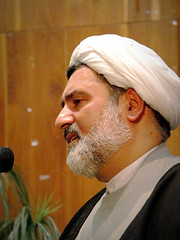 | 160 |
| 2574538293 | Mongols | Central Asian nomadic peoples; smashed Turko-Persian kingdoms; captured Baghdad in 1258 and killed the last Abbasid caliph. |  | 161 |
| 2574545171 | Chinggis Khan | Born in 1170s in decades following the death of Kabul Khan; elected Khan of all Mongol tribes in 1206; responsible for conquest of all Northern kingdoms of China, territories as far west as the Abbasid regions, died in 1227, prior to conquest of most of Islamic world. |  | 162 |
| 2574558549 | Hulegu | (1217 - 1265) Ruler of the Ilkhan khanate; grandson of Chinggis Khan; responsible for capture and destruction of Baghdad in 1257. |  | 163 |
| 2574566180 | Mamluks | Muslims slave warriors; established a dynasty on Egypt; defeated the Mongols at Ain Jalut in 1260 and halted the Mongol advance. |  | 164 |
| 2574575687 | Muhammad ibn Qasim | (661-750) Arab general; conquered Sind in India; declared the region and the Indus valley to be of the Umayyad Empire. |  | 165 |
| 2574583061 | bhaktic cults | Hindu groups dedicated to gods and goddesses; stressed the importance of strong emotional bonds between devotees and the god or goddess who was the object of their veneration; most widely worshipped gods were Shiva and Vishnu. |  | 166 |
| 2574592772 | Shrivijaya | Trading empire centered on Malacca Straits between Mayala and Sumatra; controlled trade of empire; Buddhist government resistant to Muslim missionaries; fall opened up southeastern Asian to Muslim conversion. |  | 167 |
| 2574607849 | Malacca | Portuguese factory or fortified trade town located on the tip of the Malayan peninsula; traditionally a center of trade among the southeastern Asian islands. |  | 168 |
| 2574615750 | Demak | Most powerful of the trading states on the north coast of Java; converted to Islam and served as point of dissemination to other ports. | | 169 |
| 2574624206 | stateless societies | African societies organized around kinship or other forms of obligation and lacking the concentration of political power and authority associated with states. |  | 170 |
| 2574629651 | Ifriqiya | The Arabic term for eastern North Africa. |  | 171 |
| 2574633550 | Maghrib | The Arabic term for western North Africa. |  | 172 |
| 2574635959 | Almohadis | A reformist movement among the Islamic Berbers of northern Africa; later that Almoravids; penetrated into Sub-Saharan Africa. |  | 173 |
| 2574644140 | Sundiata | The "Lion Prince"; a member of the Keita clan; created a unified state that became the Mali Empire; died about 1260. |  | 174 |
| 2574651350 | Timbuktu | Port city of Mali; located just off the flood plain on the great bend of the Niger River; population of 50,000; contained a library and university. |  | 175 |
| 2574656489 | Songhay | Successor state to Mali; dominated middle reaches of Niger Valley; formed an independent kingdom under a Berber dynasty; capital at Gao; reached imperial status under Sunni Ali (lived 1464-1492). |  | 176 |
| 2574667486 | Muhammad the Great | Extended the boundaries of the Songhay empire; Islamic ruler of the mid-16th century. |  | 177 |
| 2574708685 | Hausa | Peoples of Northern Nigeria; formed states following the demise of Songhay Empire that combined Muslim and pagan traditions. |  | 178 |
| 2574714922 | Sharia | Islamic law; defined among other things the patrilineal nature of Islamic inheritance. |  | 179 |
| 2574720350 | Zenj | Arabic term for the east african coast. |  | 180 |
| 2574724212 | Benin | Powerful city state (in present day Nigeria) which came into contact with the Portuguese in 1485 but remained relatively free of European influence; important commercial and political entity until the 19th century. |  | 181 |
| 2574731880 | Kongo | Kingdom, based on agriculture, formed on lower Congo River by the late 15th century; capital at Mbanza Kongo; ruled by hereditary monarchy. |  | 182 |
| 2574740116 | Great Zimbabwe | Bantu confederation of Shona speaking peoples located between Zambezi and Limpopo rivers; developed after 9th century; featured royal courts built of stone; created centralized state by 15th century; king took title of Mwene Mupata. |  | 183 |
























